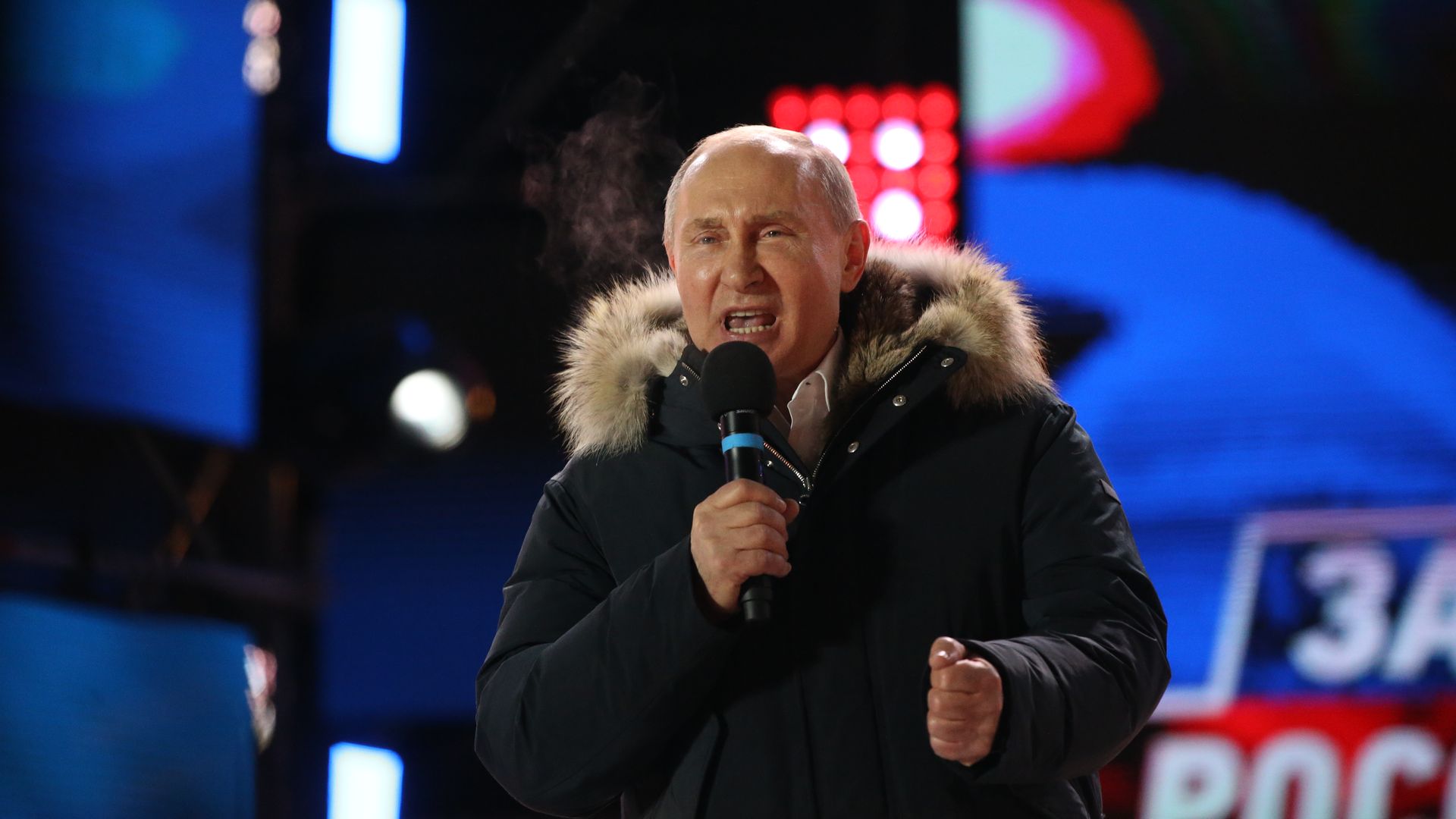Updated Mar 21, 2018 - World
Expert VoicesPutin's landslide a feat of election engineering, genuine popularity
Add Axios as your preferred source to
see more of our stories on Google.

President Putin attends a rally near the Kremlin on election day, March 18, 2018. Photo: Mikhail Svetlov via Getty Images
